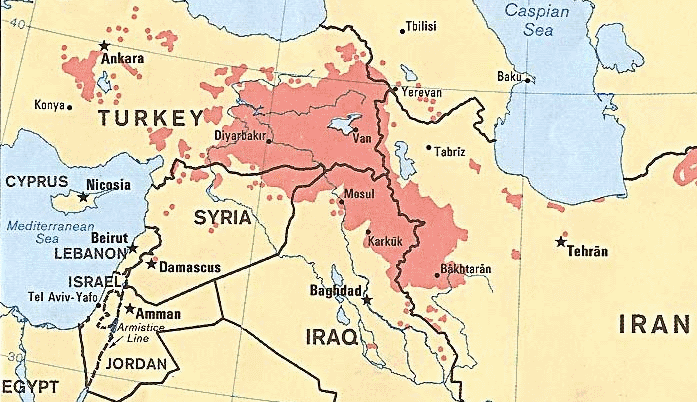
On 21 March of this year, Syrian security forces opened fire on a crowd of over 5,000 in the northern town of Ar-Raqqah. The crowd had gathered to celebrate the Kurdish New Year as three people, including a 15-year-old girl, were killed. Over 50 were injured. Yet this incident was just the last in a long list of examples of the repression of the largest national minority in Syria – the Syrian Kurdish population.
Kurds in Syria occupy the lowest social rank among the country’s minorities. Estimated at approximately 1.7 million, the Syrian Kurds make up roughly 12 percent of the country’s population. Yet the Kurds living in Syria are not recognized as an ethnic group in their own right, and many not even as Syrian citizens. Their cultural and civil rights are withheld from them, while their political parties and organizations are forbidden.
The disenfranchisement of the Syrian Kurds can be traced back to the 1950s, when successive governments in Syria began to embrace Arab nationalist policies. Consequently, they repressed Kurdish identity since it was perceived as a threat to the unity of an Arab Syria. This policy culminated in October 1962, when Syrian authorities issued a ‘special census’ in the northeast of Syria, the most densely Kurdish-populated area of the country. In the wake of the population tally, 120,000–150,000 Kurdish citizens were arbitrarily stripped of Syrian citizenship, leaving them, and subsequently their children, without basic civil rights and condemned to poverty and discrimination.
With the harassment of Syrian Kurds increasing further through the years, the situation finally culminated in large-scale demonstrations throughout northern Syria in 2004. The spark that ignited the wave of protests was the killing of seven Kurds by security forces following a clash between Kurds and Arabs at a football match. Further shootings followed, during which the Syrian authorities killed at least 100 people, injured over 300, and detained more than 2,000.
Despite conciliatory statements made by President Assad following the unrest, the situation since has been one of simmering tension. The lack of equal opportunity in family life, education, and employment is creating a climate of frustration among denationalized Kurds – particularly its youth – depriving them of hope for the future. Meanwhile, the US invasion of Iraq in 2003 gravely exacerbated the Kurds’ predicament, as the Kurdish support for the invasion created a direct conflict between the Syrian regime and its Kurdish population.
Today, however, the Kurds are encountering adversity when making their voices heard even on the international stage. They face a situation where many countries in the region – Syria, Turkey and Iran – all have sizable Kurdish populations and a shared interest in keeping them suppressed. As a result, the Kurds of Syria are likely for the foreseeable future to remain the region’s forgotten minority. Sooner or later, however, Syria will need to address the underlying grievances of its Kurdish minority.
Democratic and human rights reforms to improve the situation for Kurds must be implemented in Syria. Regionally, Iraq has already taken steps to improve its relationship with its Kurdish minority, and Turkey has recently committed itself to taking steps to uphold the rights of its Kurds. Syria will either do the same – or face serious social unrest in the future.

